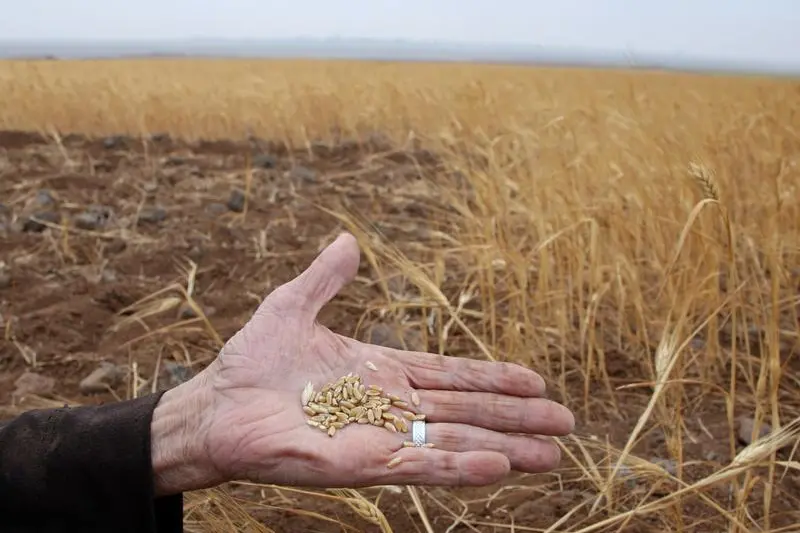PHOTO
PARIS/SINGAPORE - The most-active Chicago wheat futures fell back from a 14-year high on Tuesday, pausing after a run of six daily gains, as the market wrestled with supply upheaval caused by Russia's invasion of fellow grain exporter Ukraine.
As merchants and importers seek alternatives to Ukrainian and Russian supplies, which usually account for about 30% of the world's wheat exports, traders were awaiting the outcome of international tenders taking place this week to gauge price and availability of wheat.
"We are seeing a drop in Chicago futures today but that doesn't mean prices in the physical market will come down," said Ole Houe, director of advisory services at agriculture brokerage IKON Commodities in Sydney.
"Wheat supplies are tight and demand remains absolutely strong."
The most-active wheat contract on the Chicago Board of Trade (CBOT) was down 3.2% at $12.12 a bushel by 0913 GMT after earlier climbing to its highest since March 2008 at $12.78-1/4.
In less active nearby positions, CBOT May wheat was up 0.5% at $13.00-1/2 a bushel, after earlier reaching $13.63-1/2, a record for a second-month contract. Front-month March, which is in its pre-expiry period, was down 8.5% at $13.04 a bushel after officially settling on Monday at a record spot price of $14.25-1/4.
Following several sessions in which CBOT wheat futures rose by their daily maximum, the CME Group, parent of the exchange, further expanded price variation limits for CBOT wheat to $1.30 a bushel from March 7.
Also supporting wheat prices were poor growing conditions in drought-affected parts of the U.S. Plains. The crop rating in Kansas, the biggest winter wheat producing state, fell to 24% good/excellent from 25% a week earlier, according to U.S. Department of Agriculture data on Monday.
CBOT corn was down 1.9% to $7.36-3/4 a bushel and soybeans added 1.4% to $16.83 a bushel.
Concerns over a shortfall in corn and sunflower oil supplies from the Black Sea region, along with rallying energy prices, have contributed to strength in corn and soybean futures, which are processed for livestock feed and biofuel.
However, improving crop conditions in South America have curbed prices.
(Reporting by Gus Trompiz in Paris and Naveen Thukral in Singapore; Editing by Rashmi Aich, Sherry Jacob-Phillips and Ed Osmond)





















